第30章
Tuesday, November 27, 1787.
HAMILTON
To the People of the State of New York:
THE effects of Union upon the commercial prosperity of the States have been sufficiently delineated. Its tendency to promote the interests of revenue will be the subject of our present inquiry.
The prosperity of commerce is now perceived and acknowledged by all enlightened statesmen to be the most useful as well as the most productive source of national wealth, and has accordingly become a primary object of their political cares. By multipying the means of gratification, by promoting the introduction and circulation of the precious metals, those darling objects of human avarice and enterprise, it serves to vivify and invigorate the channels of industry, and to make them flow with greater activity and copiousness. The assiduous merchant, the laborious husbandman, the active mechanic, and the industrious manufacturer, -- all orders of men, look forward with eager expectation and growing alacrity to this pleasing reward of their toils. The often-agitated question between agriculture and commerce has, from indubitable experience, received a decision which has silenced the rivalship that once subsisted between them, and has proved, to the satisfaction of their friends, that their interests are intimately blended and interwoven. It has been found in various countries that, in proportion as commerce has flourished, land has risen in value. And how could it have happened otherwise? Could that which procures a freer vent for the products of the earth, which furnishes new incitements to the cultivation of land, which is the most powerful instrument in increasing the quantity of money in a state -- could that, in fine, which is the faithful handmaid of labor and industry, in every shape, fail to augment that article, which is the prolific parent of far the greatest part of the objects upon which they are exerted? It is astonishing that so simple a truth should ever have had an adversary; and it is one, among a multitude of proofs, how apt a spirit of ill-informed jealousy, or of too great abstraction and refinement, is to lead men astray from the plainest truths of reason and conviction.
The ability of a country to pay taxes must always be proportioned, in a great degree, to the quantity of money in circulation, and to the celerity with which it circulates. Commerce, contributing to both these objects, must of necessity render the payment of taxes easier, and facilitate the requisite supplies to the treasury. The hereditary dominions of the Emperor of Germany contain a great extent of fertile, cultivated, and populous territory, a large proportion of which is situated in mild and luxuriant climates. In some parts of this territory are to be found the best gold and silver mines in Europe. And yet, from the want of the fostering influence of commerce, that monarch can boast but slender revenues. He has several times been compelled to owe obligations to the pecuniary succors of other nations for the preservation of his essential interests, and is unable, upon the strength of his own resources, to sustain a long or continued war.
But it is not in this aspect of the subject alone that Union will be seen to conduce to the purpose of revenue. There are other points of view, in which its influence will appear more immediate and decisive. It is evident from the state of the country, from the habits of the people, from the experience we have had on the point itself, that it is impracticable to raise any very considerable sums by direct taxation.
Tax laws have in vain been multiplied; new methods to enforce the collection have in vain been tried; the public expectation has been uniformly disappointed, and the treasuries of the States have remained empty. The popular system of administration inherent in the nature of popular government, coinciding with the real scarcity of money incident to a languid and mutilated state of trade, has hitherto defeated every experiment for extensive collections, and has at length taught the different legislatures the folly of attempting them.
No person acquainted with what happens in other countries will be surprised at this circumstance. In so opulent a nation as that of Britain, where direct taxes from superior wealth must be much more tolerable, and, from the vigor of the government, much more practicable, than in America, far the greatest part of the national revenue is derived from taxes of the indirect kind, from imposts, and from excises.
Duties on imported articles form a large branch of this latter description.
In America, it is evident that we must a long time depend for the means of revenue chiefly on such duties. In most parts of it, excises must be confined within a narrow compass. The genius of the people will ill brook the inquisitive and peremptory spirit of excise laws. The pockets of the farmers, on the other hand, will reluctantly yield but scanty supplies, in the unwelcome shape of impositions on their houses and lands; and personal property is too precarious and invisible a fund to be laid hold of in any other way than by the inperceptible agency of taxes on consumption.
If these remarks have any foundation, that state of things which will best enable us to improve and extend so valuable a resource must be best adapted to our political welfare. And it cannot admit of a serious doubt, that this state of things must rest on the basis of a general Union. As far as this would be conducive to the interests of commerce, so far it must tend to the extension of the revenue to be drawn from that source. As far as it would contribute to rendering regulations for the collection of the duties more simple and efficacious, so far it must serve to answer the purposes of making the same rate of duties more productive, and of putting it into the power of the government to increase the rate without prejudice to trade.